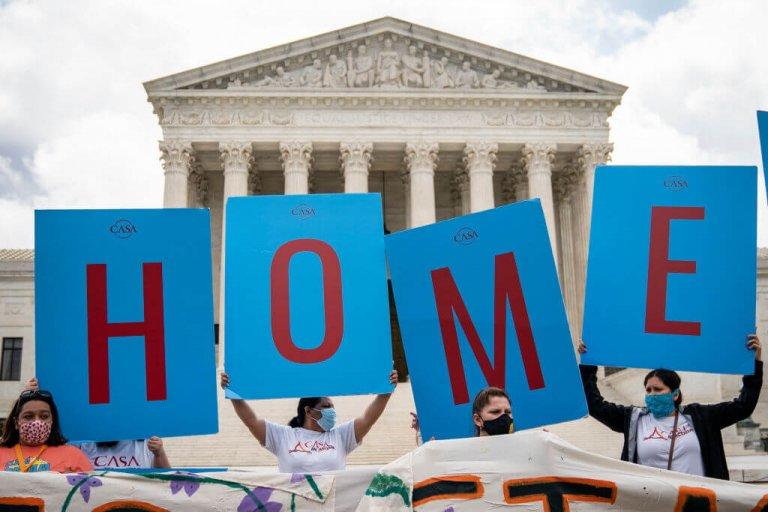
Caption
Georgia DACA recipients could pay the same tuition as other Georgians under a bill proposed by Rep. Kasey Carpenter. In this 2020 photo, people celebrate outside the Supreme Court after the high court threw out president Donald Trump's plans to dismantle DACA.
Credit: Georgia Recorder

